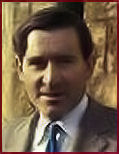Donald MacLean's Blog 12
BROADCASTING 2
Three colleagues and I sit at a table in my office at Aeolian Hall in Bond Street.
Together we're responsible for the BBC's burgeoning output of popular music. Jimmy, Geoff and Ted are "Chief Producers" - respectively covering 'Pop', 'Middle-of-the-road' and 'Light Music'. Each of them leads a team of Producers responsible for a total of around 30 music sessions a week - some pre-recorded, many 'live' - equal to several hundred '78s' - a much greater output than the whole record industry of the time. Together with our meagre ration of records ('needletime'), this represents about 45 hours of the BBC's domestic and overseas networks (and a high proportion of the audience ratings).
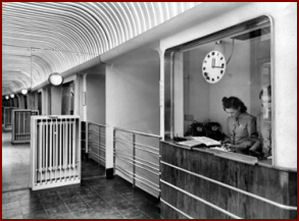 |
|
Foyer of the Paris Cinema before it became a BBC studio |
Geoff is called out to take an urgent phone call from a studio near Piccadilly Circus - when he returns he says "A 'song-plugger' is being a nuisance and is ignoring requests that he leave the studio by the Producer ... who wants me to go there and back him up." Geoff and Jimmy tell me this is an increasing problem and suggest it would send a helpful signal if I were to go and provide the reinforcement. The interfering music-publisher's salesman is the son of one of the top-rating band-leaders of the time - a celebrity fronting our most popular weekly programme - and whose carefully-nurtured BBC contact is my boss. I say "This is thin ice?" The smiles from my colleagues mean "Yes."
In the studio premises the loudspeaker in the 'green room' relays the chatter of the relaxing orchestra, choir and guest-artistes - much of it an animated discussion of the interesting challenge to the young producer's authority which they had witnessed. The producer's voice says that I am upstairs and would appreciate the offender's joining me. A hush descends. Good!
He and I are both in our mid-twenties. We reach agreement quickly. I tell him he must modify his behaviour - and that I'm aware that his Dad can quickly undermine this request - but if that occurs I shall consult my friend the Chairman of the company that employs him. We shake hands and he immediately launches into a risqué (and quite relevant) Cockney story. En route for the exit we enter the studio laughing. And, for a few months at least, our Producers and the army of song-pluggers who circle them, revert to their previous amicable co-existence.
That was in the early 1950's.
In 2008 a towering figure in British entertainment dies. The many obituaries all remind us that he had fathered a Golden Age of television with "Morecombe and Wise", "The Two Ronnies", "Monty Python" etc., and in 1987 had retired as Managing Director of BBC TV. None of the obits that I see refers to the fact that Sir Bill Cotton CBE had started this glittering career promoting songs for a music publisher.
Many of the people with whom I travelled this three-decade journey were interesting - I'd like to introduce you to some of them.
While I was responsible for the BBC's increasing output of popular music I recruited a number of Producers, and I went out of my way to include some characters who, I thought, might bring fresh ideas - while recognising that they would (more certainly) create a little havoc in the staid world of the BBC.
Bernie Andrews, for example. Google his name and you'll be confronted with a long list of notable productions involving The Beatles, Queen, and many others. I once reprimanded him for something and his response was "Typical Cancerian". He was one of those folk who could tell, after seconds in someone's company, under what star sign they were born. I saw him do this on maybe a dozen occasions - he was right every time.
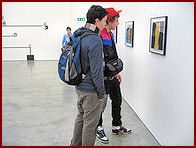 |
I was a member of the small group who established the Institute of Contemporary Arts in its prestigious quarters in Carlton House Terrace. I was told that some paintings exhibited alongside David Hockney's were by the trumpet-player in The Alan Price group. John Walters turned out to be a garrulous Northerner and I persuaded him to join our production staff. Jimmy Grant teamed him with John Peel and thereby created a partnership which is still mentioned with awe. When John W. died suddenly in 2001 the BBC was flooded with tributes - one of them said "He and John Peel both had that special enthusiasm for gently tipping everything over."
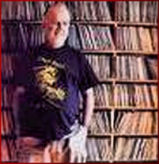 |
|
John Peel |
Recalling John Peel reminds me of another outsize personality who became so popular in our output that he was offered a lucrative contract with Capital Radio. He told me the terms he had been offered and added "But I've said I just want a house in Regent's Park, near the American Ambassador"! He got it. (Heaven knows what that cost - we certainly couldn't compete.) Sadly, Kenny Everett died before his 51st birthday. A personality much too vital to grow old.
 |
|
Kenny Everett |
You can probably now envisage my territory in the 50's & 60's - a rather narrow borderline between a creative world on one side and a deeply traditional one on t'other. The network Controller from whom I had to coax allocations of airtime and budget for the likes of Peel and Everett was accessible, during the cricket season, only in the mornings. In the afternoons, if he wasn't in his seat at Lords, his attention was with the commentary from there. During the war he had been a Government Information Controller and was the author in 1949 of a book called "Poultry Keeping for Profit". In 1956, while I was at Suez, he published an anthology of 10 years of his colleague's (highbrow) Third Programme.
The Beatles' manager, Brian Epstein, had a secret office above an Asian airline in a side-street behind Aeolian Hall. He called me one morning late in 1964 saying he had to make a very important but difficult decision - I could help him, if I'd be so kind, by just listening as he talked it through. An hour later I collected him and we walked the two blocks to my club (the Arts) in Dover Street. He ate very little of his lunch. The Beatles were, by this stage, so popular that public appearances had to be treated like royal occasions - with some police forces demanding that they stay away. Their status in the US was now breaking all records ... he was besieged with requests that they tour the States. The money offered was becoming astronomical, but he was concerned for safety - of members of the public as well as the boys.
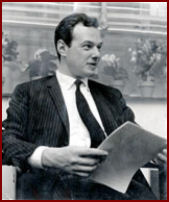 |
|
Brian Epstein |
I wrote in my diary "B.E., usually quiet, talked non-stop. They'll probably do a couple of weeks Stateside next year."
During the last two weeks of August '65 The Beatles played 10 concerts in America and one in Canada. Every one was headline news worldwide. The Shea Stadium in New York held 55,000 people and there seemed to be at least as many more outside trying to see their idols - the group were flown in by helicopter and then into the centre of the arena in a Wells Fargo armoured truck. Promoter Syd Bernstein hired 2,000 security guards - and banked $304,000 - "the greatest gross from a single event ever".
Watching the tapes now it's clear that simply seeing the Beatles, just being in their presence, was everyone's object - they knew every note of every song by heart. Which is as well because even with the especially-created loudspeaker system the music was obliterated by screaming. (When he realised no-one was really listening John Lennon played the piano with his elbows.)
During my training as a TV Producer my chum was
fellow-student
Ned Sherrin. One day he and I sat with another budding Producer, Alasdair Milne, in the
office of the legendary Grace Wyndham Goldie. The three of us listened
attentively to this brilliant lady's thoughts as she talked, gazing at the
ceiling, her feet inelegantly parked on her desk. Alasdair was a dour Scot
- so I kept my gaze firmly on him, not daring to catch the eye of the
mischievous Ned, who I knew would inevitably voice some clever
double-entendre about the traditional bloomers that were clearly in view.
 |
|
Ned Sherrin |
Ned later created the ground-breaking satirical series "That Was The Week That Was", introduced by newcomer David Frost. After producing some "Dixon of Dock Green" episodes and the initial "Come Dancing" programmes I returned to Aeolian Hall to head the new popular music production group through 'the Beatles era'. Alasdair created the "Tonight " series and the wondrous "Yes, Minister" programmes. In the eighties he became the BBC's Director General through a challenging period before being ousted by political pressure.
|
|
|
Alasdair Milne |
As I write this, the circumstances of Alasdair's departure must be in the minds of many of us as the Chilcot Enquiry starts its investigation into the circumstances of the Iraq Invasion and events which triggered the departure of the BBC's popular D.G. Greg Dyke. We can, I believe, feel confident that the BBC has - so far - been robustly independent, given that three of its leaders have irked the ruling politicians sufficiently to be ousted by them - Hugh Greene in '69, Alasdair Milne in '87 and Greg Dyke in '04. I wonder if we'll have to wait another 17 years for the cycle to repeat?
Jim Davidson had been one of Australia's most successful band-leaders. On a world cruise he had arrived in Britain at the precise moment that the BBC was rocked by a very public scandal - the executive responsible for popular music broadcasts, a lady called Tawny Nielson, had been the focus of bribery allegations (the UK's equivalent of America's "Payola" episode that ended Alan Freed's career) and she had departed to South America. Jim was persuaded to take her place ... obviously expert ... obviously free of any connection with the corrupting influences in London. He set about consulting the household names of Britain's popular music industry.
Oscar Rabin and Joe Loss told him, among much else, that the Beeb's youngest producer, getting publicity for his innovative work in Scotland, would be a good recruit - and I needed no persuasion to join the new-look team at Aeolian Hall. And, as the team grew, it was Jim who made me his deputy. I am therefore indebted to him. But I will not pretend to you that I liked him. I had (still have) what is perhaps a rather puritan view that being paid by the public required us to make every judgment strictly and visibly in the interest of the licence-payer. My boss, an instinctive and experienced showman, viewed our role differently. In particular he had favourites - in the worlds both of performers and their agents - I had to learn where my boundaries were.
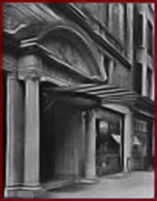 |
|
Aeolian Hall |
The only time I recall Jim praising me was one day when we met at the doorway of Aeolian Hall ... walking back from a studio I had passed Aquascutum in Regent Street and, on impulse, I'd bought, in their sale, a grey overcoat of sublime cashmere. It remained the most expensive garment I have ever bought. (Until Ann's lovely Armani jacket last week!). Jim told me that that coat was the first decent bit of clothing in which he'd ever seen me.
Gradually I met the hierarchy above him. A key figure whom I came to like and respect was R. D'a. (Dick) Marriott, Frank Gillard's deputy in overall charge of the Radio half of the BBC. It was Dick Marriott who encouraged a milestone project of mine. (I think he was the only one who understood it.) It came to be called "strip-programming'.
It was based on my belief that listeners to our daily breakfast slot on Light Programme used it for company during the same 30 or 40 minutes every weekday morning (each listener a different 40 minutes) as they prepared for the day ahead. I believed they wanted a background of familiar, tuneful music interspersed with time-checks, the weather and news headlines.
Five producers each created the slot on a different weekday - from several recording sessions and a few records. Some, to my mind, did it well, others less so.
My notion was to assign the whole week's 'strip' to the producer who was getting the best results - and to distribute the output of each recording session across the whole week. The snag was that this was about eight times the weekly output that even our record-breaking producers could achieve.
I called the team together and showed them my solution: a large piece of flat wood - a table-top - divided into 5 columns (Monday to Friday) - each column consisting of 70 half-inch slots - each of which would hold a strip of paper identifying a piece of music. Details of the items played at every recording session were already typed on a sheet of paper - it would be necessary only to repeat on each line the name of the orchestra and then chop the page into the necessary strips.
There was enough needletime for every tenth item to be a commercial record - colour those slots blue - and stagger the placing of the blue slots by two places each day. The other slots to be identified in sequence by a letter of the alphabet - "A" to "T" if there were 20 recording sessions per week.
(You're ahead of me, aren't you?)
So ... the first item recorded by orchestra "A" would go into the first "A" slot on Monday - and their other items in the "A" slots across the week - at a steadily changing clock time.
And of course you have twigged, haven't you, that with each day starting with a different letter ... every listener (tuning-in at about the same time every day, and for about the same length of time) would hear a much richer selection of music every day ... almost like a record programme.
Perhaps I didn't communicate the concept clearly enough - I failed to get the support of any of my superiors - until Dick Marriott, to my delight, complimented me - and, very perceptively, said "The performers and producers may get less satisfaction from creating little bits of airtime instead of having more intensive exposure on 'their' day.") Of course he was right. I had kept them in the picture (having them help me at each stage of the planning) so that they had some 'ownership' - but still it represented a loss of control for all but the new team leader.
I took a week off and spent 12 hours a day in my little summerhouse with a record-player and armfuls of records creating what, in later days, would be called a "playlist".
When it went on the air Dick Marriott asked me to collect him from his home in upmarket St John's Wood on my way into town and was beside me in the studio at 6.0am for several days while we fine-tuned it.
After 3 months of the new system the audience had increased by over 20% and the 'Appreciation Index' by 12%.
Many years later I received a letter on McKinsey & Co letterhead. It said "I hope this reaches you. My colleagues and I have completed a project at the BBC. In the course of it we came across your "Strip programming" board - now in more general use. Under the original board someone had stapled a note from you saying 'Some day computers will become available to do this.' You might like to know that they have - and they are."
"In my day I'd have reminded these over-paid mumblers that their job is to communicate". I've just switched-off the BBC radio programme "Today", muttering to my golden retriever that I may be a bit deaf now (as she knows) but I can follow other programmes perfectly well. "I'd like to meet the Editor of "Today". I'd tell him that punctuation matters ... running every sentence into the next and taking breath in the middle of phrases may be fashionable but it's wrong - for good reason ... and rapid gabbling ... I'd tell him that he's not doing his job as the agent of the listener".
Beckie's solemn eyes signal her agreement. She knows she has to listen to this old-man's-rant because Ann's heard it too many times. And anyway it's me who gives her breakfast.
Last night another BBC Radio programme - "Any Questions" - was broadcast from our village and, with four hundred of our neighbours, we were the audience. The Producer was a young lady - she explained that while she shortlisted our questions for the transmission one of her colleagues had come to talk to us.
Twenty minutes later, as the cue-lights flashed, I whispered to Ann "I didn't hear a word that man said - who was he?" I knew from the twinkle in her eyes that the answer was significant. "The man who has just departed is the Editor of "Today".
D.H.M.
"The internet enables anyone to broadcast to a worldwide audience."
Anon.
After leaving the BBC I was invited to a
meeting at Television Centre of a small group of erstwhile colleagues
who had been elected to run the new BBC Pensioners' Association and I have
been a life member ever since.
We have our own website at
www.bbcpa.org.uk
- - - - - -
Back to 'Contents' table
- - - - - -
